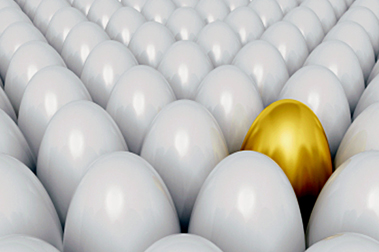
How
to participate as a recipient
In order to decide if you are
a candidate for the program, you will be asked to
forward all your medical records, laboratory tests,
copies of prior operative procedures, radiology X-rays
such as the hysterosalpingogram and any pertinent
information on the evaluation of the husband prior
to being seen by Specialists in Reproductive Medicine
& Surgery, P.A. (SRMS). Both the patient and partner
will be encouraged to attend the first interview.
Depending upon the age of the recipient, additional
testing including an EKG, treadmill, psychological
evaluation, mammogram, vaginal ultrasound and screening
blood tests may be requested. Medical conditions such
as diabetes and other significant medical problems
may exclude an individual from becoming an egg recipient.
Donor Recipient Q&A
Am I at a greater
risk during my pregnancy if I am older than most pregnant
women?
If you are in good general
health, the risks for carrying a pregnancy later in
life are minimized. Older pregnant women do seem to
have an increase in the incidence of the following:
- C-Section (Surgical Delivery)
- Hypertension (High Blood Pressure)
- Gestational Diabetes (High blood
sugar during pregnancy)
- Placental Infarcts (damage)
leading to smaller gestations and placental abruption
- Placental
previa where the placenta blocks the exit of the
fetus requiring a C-Section
While exceedingly
rare, the mortality rate for pregnant women over the
age of 40 reaches 80 per 100,000 women compared to
20 per 100,000 women at 30 years of age.
The risks of genetic abnormalities, such as Down’s
syndrome, are proportional to the age of the egg donor
and not your age. The age of your uterus does not
seem to play any significant role in your ability
to sustain and carry a pregnancy. This general area of research continues to develop
and the potential egg recipient needs to understand
that she may be considered high risk simply because
of her age.
What has to be done in preparation for the actual
embryo transfer?
SRMS will suggest a specific
protocol that is tailored to your current medical
state. In general, if you are still ovulating, a medication
will be given to inhibit the ovulation process. Supplemental
estrogen and progesterone will then be administered
most commonly through injections such that the hormonal
cycle is carefully mimicked and controlled. This careful
control of the cycle is necessary so that the donor
and recipient cycles are matched precisely and that
the freshly fertilized eggs may be implanted in the
recipient’s uterus.
What are the potential
liabilities?
The recipient couple will be
responsible for any reasonable hospital/physician
charges incurred by the donor for complications associated
with the egg donation process. The most common complication
of the process involves overstimulation of the ovaries
called Ovarian Hyperstimulation Syndrome (OHSS). OHSS
can result in hospitalization and prolonged treatment.
The complications of the egg retrieval process itself
are less than 1%. Rarely, a surgical complication
such as infection or bleeding could require hospitalization
and an emergency laparoscopy on the egg donor. Every
attempt would be made to have the process covered
on the egg donor’s insurance policy, but any
unpaid balance will be the responsibility of the recipient
couple. Egg donor insurance may be available, so please
ask the SRMS staff about this option.
The staff at SRMS will do everything possible to prevent
all complications from occurring to any patient, especially
egg donors. The cycle will be canceled if we feel
the risks to the donor are too great.
Find an egg donor
Unlike many programs, SRMS has an extraordinary abundance
of egg donors waiting for recipients. Our egg donation
program has been active since 1994. Since Dr. Sweet
lectures to the general public, the local university
and the community college, he has an opportunity to
request that young healthy women consider being egg
donors. Many volunteer.
We currently have dozens of wonderful women willing
to donate their eggs to needy couples. Please review
our egg donor database for further information on
each qualified donor. There are two ways to search
the database, by photo and by narrowing the list through
physical characteristics.
For more information please visit our Download Section.







